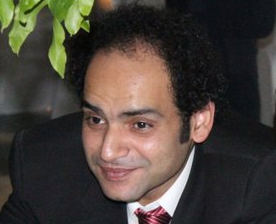
I haven’t thought about the “old regime” in quite a while. In fact, I think the Muslim Brotherhood’s unique act over the past year has made most of us realise the new lows that we have reached with Morsi and his people. Mubarak’s regime always mixed corruption with inefficiency. Morsi’s regime maintained the same formula, and just added religious manipulation to the equation.
Unfortunately, the Muslim Brotherhood’s inept performance was the perfect excuse for the old regime’s grassroots to resurface. What’s even worse is how the Brotherhood’s recurrent failures created a state of nostalgia for the old regime, specifically among the non-politicised mass. At the same time, the state of fear that silenced the Mubarak supporters ever since January 2011 is apparently long gone, and clearly replaced with a poised and provocative behaviour.
There is absolutely no need to bury our heads in the sand at any time. Regardless of the outcome of 30 June, remnants of the old regime are indeed an active part of rallying and mobilising for that day. I am not trying to say that 30 June protests are an old regime inspired event. Neither am I pointing to any influence for the old regime on the “Rebel” campaign. Personally, I am one of those who will protest on 30 June, but it is pointless to try and hide the fact that everybody should know by now, we will be protesting with the very people we protested against two years ago.
National Democratic Party grassroots started to mobilise themselves, former parliament members (pre-revolution parliament) are rallying for 30 June and sometimes financing organisational efforts; there is an unquestionable new influence blatantly evident in Delta and Upper Egypt and it is solidly opposing the Islamist presence in both areas. It is a dangerous trap to interpret this impressive geographical diffusion as a mere political achievement the revolutionary camp has made. Over-stating the real reach of post-revolutionary political forces at this moment is extremely risky.
So a momentary alliance between revolutionary forces, old regime grassroots and supporters, the non-politicised mass and a number of state institutions exists. But while the anti-Brotherhood alliance does exist, the interaction between its different members is still very much of a problematic matter. I am one of those who believe that an old regime-revolution confrontation will indeed take place on 30 June, and a clash between the two teams is very much likely. However, the question is not what will happen on 30 June, the question is what will happen afterwards.
If 30 June turns out to be a success, we will find ourselves facing the uncomfortable question of where exactly must the line be drawn? There are people who have been on the frontlines in every single confrontation since 28 January 2011; however, the idea of allying with the old regime was enough of turn off for them not to participate in the demonstrations in the first place.
The revolution-old regime clash is coming sooner or later. If pragmatism and practicality entail that we ignore this fact for a bigger purpose, then so be it. However, the huge distance between what the old regime represented and what the revolution represents is still very much there. How old regime supporters see things is seriously different than how post-revolutionary political forces envision matters. Thanks to Morsi and the Muslim Brotherhood, these two extremes are now in one camp. But it must be understood that even if 30 June is successful, the classic old regime-revolution confrontation will indeed take place.


